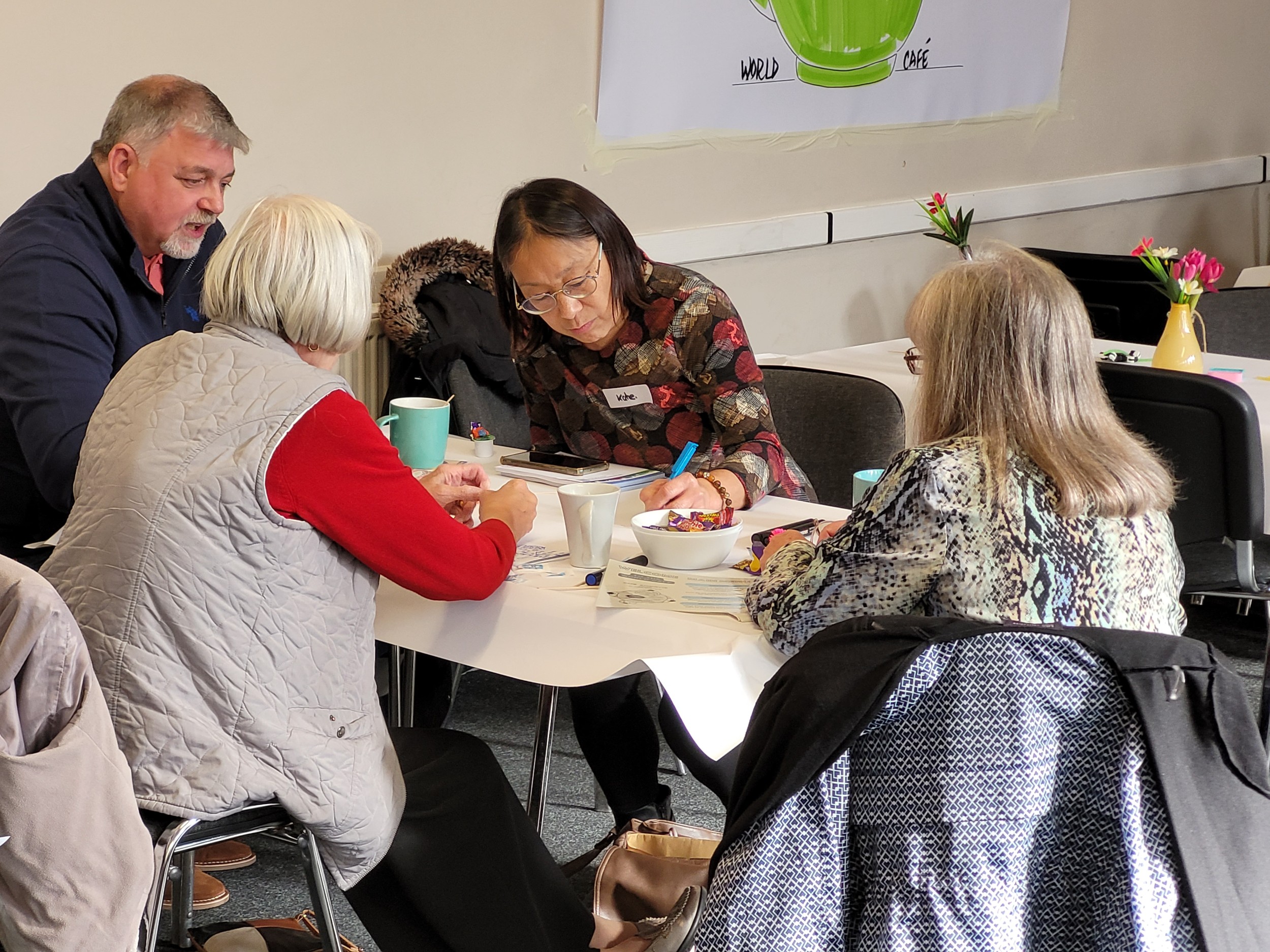Our vision is that all people across the Black Country affected by dementia have access to timely, well-coordinated and high-quality care and support from before their diagnosis through to end of life, enabling them to achieve the outcomes that matter to them.
Dementia is an umbrella term for a range of progressive conditions that affect the brain causing symptoms such as memory loss, confusion and problems with speech and understanding making it hard for a person to undertake everyday activities. The number of people with dementia in the UK is rising rapidly and is expected to continue to grow as the population ages and people live for longer. Dementia affects about 900,000 people in the UK.
Across the Black Country we have a higher prevalence of dementia than the national average. With an aging population and high levels of deprivation (the Black Country is the second most deprived ICS in the country) the prevalence of dementia is set to increase with trajectories showing that our estimation of people living with dementia is set to rise to over 21,000 by 2030. Dementia is therefore becoming an increasing priority for the Black Country. It is crucial that people can access a timely diagnosis and suitable support services throughout their dementia journey to enable them and their carers to live well.
We have developed a Black Country wide strategy, co-produced with our statutory health and care partners, non-statutory partners and people living with dementia. The strategy sets out the Black Country vision, ambitions and commitment required to ensure that there is high quality, accessible dementia care to enable people with dementia, their families and those who care for them, to live well with dementia.
It sets out nine key ambitions which outline the improvements and achievements we want to make as a system. The ambitions have been developed and informed by:
-
collaborative working across the sectors and ICS system partners
-
public and stakeholder engagement and feedback
-
national and local policy, evidence and data.
Implementation of the strategy and achieving the improvements will be through partnership and integrated working between key organisations and stakeholders both across our system and within the four place-based partnerships across Walsall, Wolverhampton, Sandwell and Dudley.
As a system we will work towards supporting and enabling individuals to reduce their risk of developing dementia from childhood through mid-life and later life.
- Continually raise awareness across communities through a range of initiatives
- Support our population to take up healthy lifestyle behaviours and improve access to public health and healthy lifestyle services and opportunities
- Work with system partners to address wider determinants of health that can contribute to cognitive decline.
Access to a timely and accurate dementia diagnosis opens the door to care and support, empowering people and their carers to play an active role in managing their dementia, enabling them to plan for the future.
- Ensure easy access to information about dementia pre and post diagnosis
- Enable early identification, diagnosis and intervention, ensuring everyone diagnosed has a personalised care plan and a review within the first year
- Reduce memory assessment waiting times.
Access to safe high-quality health and social care, information and advice at the right time for people with dementia and their carers.
- Deliver a consistent support offer across the four Places for people with dementia and their carers
- Provide clear dementia information and sign posting opportunities that empower people to self-help where appropriate
- Ensure those at risk of crisis are supported and offered care plan reviews more frequently if needed.
People with dementia can live normally in safe and accepting communities and expect to receive compassionate, personalised treatment, care and support throughout the progression of dementia.
- Ensure services provide personalised interventions that consider the person as a whole as well as their family and carers.
- Work with local partners, businesses, and communities to increase awareness and education about dementia, create inclusive communities.
People living with dementia die with dignity in the place of their choosing
- Enable early and ongoing opportunities for people with dementia and their families to be involved with personalised planning for end of life.
ICS leaders have a key strategic role in enabling commissioning and delivery of integrated and high-quality personalised dementia care. Including key roles within the Integrated Care Partnership (ICP) and Place Based Partnerships across health, social care, and the voluntary community sector.
- Support a multi-agency approach, working collaboratively across all partners to deliver the strategy.
All staff across health and social care and the voluntary community sector have the appropriate skills and training to perform their roles well and to a high standard.
- Ensure equitable access to training opportunities across all staff levels and health and care sectors, including care homes, paid and non-paid carers, considering cultural perspectives and diversity.
Tackling health inequalities is recognised as central to improving health outcomes and is a cross cutting theme across the whole strategy. It will include consideration to the key drivers of health inequalities.
- Using data and insights, undertake targeted interventions to tackle the risk factors associated with inequalities which occur particularly in Black, Asian and minority ethnic groups and in our vulnerable populations, understanding and breaking down barriers preventing individuals from seeking help.
How to best shape services and support around the lives of people with dementia and their carers.
- Ensure that people living with dementia and their carers are involved in service improvement and development and that there are robust methods to engage and coproduce in a meaningful way.
Developing our strategy - Throughout October and November 2023, the ICB Involvement team focused their community conversations on organisations and groups that support people living with dementia, their families and carers. The team listened to their stories and asked what mattered most to them. What people have told us has been central to shaping the strategy.
Ongoing engagement - We will continue to engage with patients and the public to understand whether the improvements are being felt by the people who most need the services.



